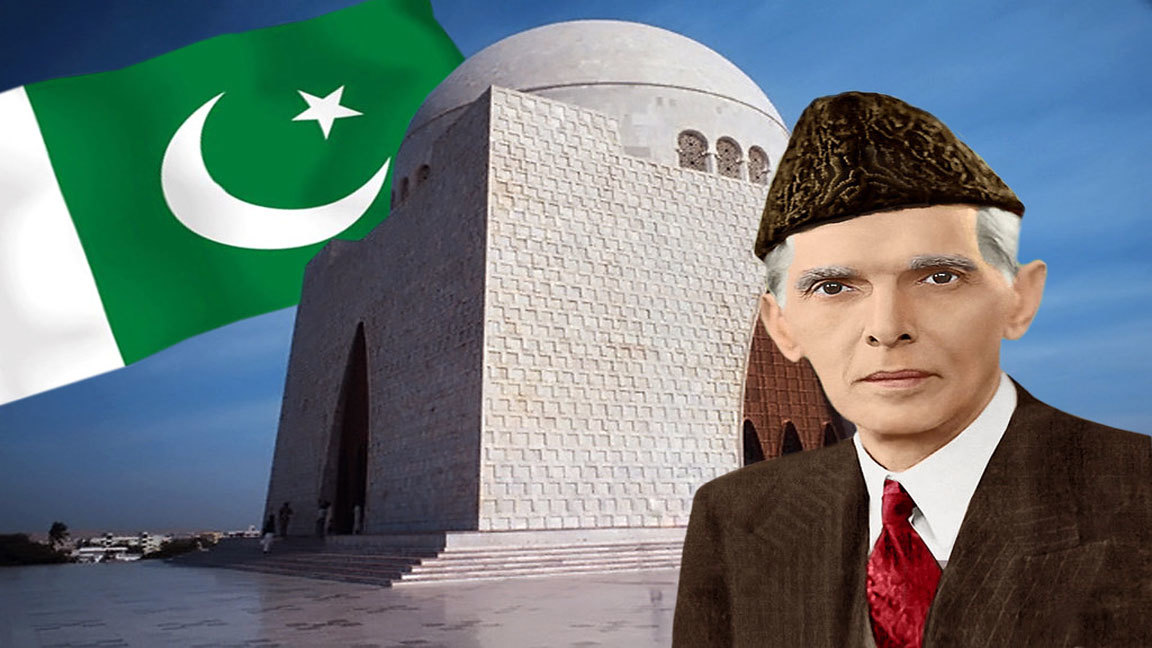Quaid-e-Azam Muhammad Ali Jinnah: Architect of a Nation’s Destiny
Introduction
In the annals of history, few figures loom as large as Quaid-e-Azam Muhammad Ali Jinnah, the founding father of Pakistan and our national hero. His vision, leadership, and unwavering commitment to the ideals of freedom and self-determination played a pivotal role in the creation of our nation. In this essay, we will delve into the life and legacy of Quaid-e-Azam, exploring his extraordinary contributions to our collective identity and the enduring lessons he imparts.

Body
- Early Life and Education: Born on December 25, 1876, in Karachi, Muhammad Ali Jinnah emerged from humble beginnings to become one of the towering figures of the 20th century. His early education in Karachi and later in England instilled in him a deep sense of purpose and a commitment to excellence that would characterize his entire life.
- Champion of Independence: Throughout his illustrious career, Quaid-e-Azam remained steadfast in his dedication to the cause of Indian independence. As a prominent leader of the All-India Muslim League, he tirelessly advocated for the rights of Muslims in the subcontinent and played a key role in the struggle against British colonial rule. His unwavering resolve and strategic acumen galvanized the Muslim community and paved the way for the creation of Pakistan.
- Architect of Pakistan: Quaid-e-Azam’s greatest achievement lies in his role as the architect of Pakistan. Through skillful negotiation and unwavering determination, he secured the Lahore Resolution in 1940, which called for the creation of a separate Muslim state. In the tumultuous years that followed, he led the movement for Pakistan with wisdom and foresight, ultimately achieving the dream of millions with the establishment of the new nation on August 14, 1947.
- Statesmanship and Vision: As Pakistan’s first Governor-General, Quaid-e-Azam demonstrated exemplary statesmanship and vision. He laid the foundation for a democratic and pluralistic society, emphasizing the principles of equality, justice, and tolerance. His famous speech on August 11, 1947, encapsulates his vision for Pakistan as a modern, progressive, and inclusive nation where every citizen would be free to practice their religion and pursue their aspirations without fear or discrimination.
- Legacy and Inspiration: Quaid-e-Azam’s legacy continues to inspire generations of Pakistanis to strive for excellence and uphold the values of unity, faith, and discipline. His unwavering commitment to the ideals of democracy, rule of law, and social justice serves as a guiding light for our nation as we navigate the challenges of the 21st century. His life and achievements remind us of the power of courage, determination, and integrity in shaping the destiny of nations.
Conclusion
In conclusion, Quaid-e-Azam Muhammad Ali Jinnah stands as a towering figure in the pantheon of our nation’s heroes, a beacon of hope and inspiration for generations to come. His leadership, vision, and unwavering commitment to the cause of freedom have left an indelible mark on the history of the subcontinent. As we commemorate his legacy, let us reaffirm our dedication to the ideals for which he fought tirelessly and strive to build a Pakistan that honors his vision of a democratic, inclusive, and prosperous society for all.


